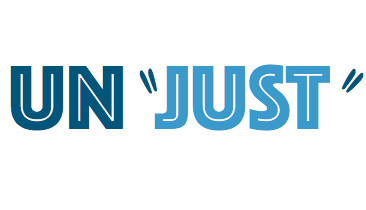
"Just" Say No
First published on Women 2.0 http://women2.com/2014/02/17/just-say
A few years back I noticed something: the frequency with which the word “just” appeared in email and conversation from female co-workers and friends. I first sensed this it shortly after leaving Google and joining a company with a high ratio of female to male employees.
Google, and everywhere else I’d worked before, had a more traditional gender mix. I’d never really noted a high concentration of “just” before, so I thought it might be my imagination. But soon I knew my hunch was legit. “Just” just kept showing up way too frequently.
“I just wanted to check in on…”
“Just wondering if you’d decided between….”
“If you can just give me an answer, then…”
“I’m just following up on…”
I started paying attention, at work and beyond. It didn’t take long to sense something I hadn’t noticed before: women used “just” a lot more often than men.
Still, it was only a hunch — I had no data. Yet even if it was selective listening, it seemed I was hearing “just” three to four times more frequently from women than from men.
It hit me that there was something about the word I didn’t like. It was a “permission” word, in a way — a warm-up to a request, an apology for interrupting, a shy knock on a door before asking “Can I get something I need from you?”
The more I thought about it, the more I realized that it was a “child” word, to riff Transactional Analysis. As such it put the conversation partner into the “parent” position, granting them more authority and control. And that “just” didn’t make sense.
I am all about respectful communication. Yet I began to notice that “just” wasn’t about being polite: it was a subtle message of subordination, of deference. Sometimes it was self-effacing. Sometimes even duplicitous. As I started really listening, I realized that striking it from a phrase almost always clarified and strengthened the message.
And as I began to pay attention, I was astonished — believe me — at how often I used the word.
I sent a memo to my work teammates about the “J” word and suggested a moratorium on using it. We talked about what it seemed to imply (everyone agreed) and how different that message was from the way we saw ourselves: trusted advisors, true partners, win-win champions of customer success.
We started noticing when and how we used “just” and outing each other when we slipped. Over time, frequency diminished. And as it did we felt a change in our communication — even our confidence. We didn’t dilute our messages with a word that weakened them.
It was subtle, but small changes can spark big differences. I believe it helped strengthen our conviction, better reflecting the decisiveness, preparedness, and impact that reflected our brand.
Yet “just” still bugged me. Sure, I’d had my little experiment with friends. But I’d acted on a hunch, maybe right, maybe wrong.
So I ran a test in the real world.
In a room full of young entrepreneurs, a nice even mix of men and women, I asked two people — a guy and a girl — to each spend three minutes speaking about their startups. I asked them to leave the room to prepare, and while they were gone I asked the audience to secretly tally the number of times they each said the word “Just.”
Sarah went first. Pens moved pretty briskly in the audience’s hands. Some tallied five, some six. When Paul spoke, the pen moved…once. Even the speakers were blown away when we revealed that count.
Now, that’s not research: it’s a mere MVP of a test that likely merits more inquiry, but we all have other work to do.
Plus, maybe now that you’ve read this, you’ll heighten your awareness of that word and find clearer, more confident ways of making your ideas known.
In other words, help take the “J Count” down. Take the word out of your sentences and see if you note a difference in your clarity — and even the beliefs that fuel the things you say.
It’s actually easy, once you start paying attention. Like it?
If so, then, to riff Nike: well….”Do it.”
Cyber Risk, Security and Compliance Specialist
1moThought provoking article ! There are several other "little words" that have made their way into conversational speech, two that come to (my) mind are "LIKE" and "KINDA". Neither one adds much depth or meaning to a sentence, but both convey (to me at least) a sense of hesitancy or lack of confidence in the speaker's message.
EVP of Talent Development and Growth at GoodLeap | Founder GoBundance Women | Speaker | Author
1moSuch an amazing article. Eliminating this word now!
Associate Director, Marketing Communications
3yI don’t agree that it is always a weakness to use words like just. People can come off in emails as cold, demanding and overly directive without some softening elements. It’s all about context. It may be much preferred to come across as collegial and collaborative than demanding and commanding in many working situations.
Global Staffing Lead
3yI thought I was over this bad speech habit and then found a new one today where I say "you know" 5 times in 3 minutes in a coaching video. A constant journey. Thank you for sharing your expertise. Your career path and leadership are inspiring!
Bestselling Author; 📖Get my new book, "Word Wise: Say What You Mean, Deepen Your Connections, And Get To The Point"👇
4yHi Ellen, Would you be willing to allow me to quote a few sentences from your wonderful article here in my forthcoming book, "Word Wise"? P.S. let me know if you'd like me to send you an ARC P.P.S. let me know if you would be willing to provide a one or two sentence blurb review we could use on the book. Thank you in advance. Warm regards, Will